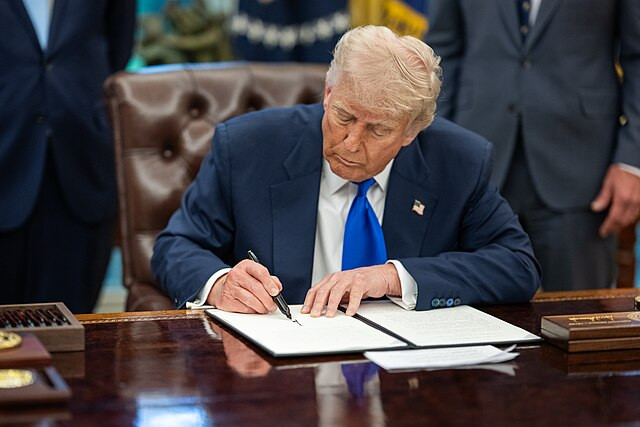President Donald Trump's proposed budget package-touted as a sweeping extension of his 2017 tax cuts-faces serious resistance from multiple factions within the House GOP, placing the bill's passage in jeopardy ahead of a Memorial Day deadline.
House Speaker Mike Johnson, a Louisiana Republican, has pledged to bring the bill to the floor before the holiday recess. But internal divisions are threatening to derail the legislation, which includes extended tax cuts, new tax provisions, and increased spending on border security and the military, offset in part by cuts to Medicaid, food assistance, and clean energy subsidies.
The House Budget Committee, chaired by Rep. Jodey Arrington (R., Texas), is set to take up the bill Friday. Its approval is the next critical step before a scheduled Rules Committee meeting on Monday. "I'm confident we have the votes," Arrington said Thursday, even as two conservative members of the panel, Reps. Ralph Norman (R., S.C.) and Chip Roy (R., Texas), said they would vote no. "We've got a spending problem. We've got a deficit problem, and it doesn't address that," Norman stated.
The bill's survival depends on a delicate balancing act. House Republicans hold a narrow majority, meaning Speaker Johnson can afford just three defections if all members vote. Yet at least five Republicans from high-tax blue states have balked at the current $30,000 cap on state and local tax deductions (SALT), calling for a more generous threshold. "None of us are going to support that as it currently stands," said Rep. Mike Lawler (R., N.Y.).
In addition, more than a dozen Republicans are concerned about provisions that eliminate clean energy tax credits, which have benefited their districts. Lawmakers from agricultural states have voiced opposition to provisions that would shift costs of the Supplemental Nutrition Assistance Program (SNAP) to state governments.
The far-right House Freedom Caucus poses perhaps the most significant threat. Its members argue the bill is laden with budget "gimmicks" and fails to impose meaningful fiscal discipline. Chief among their complaints is that the proposed Medicaid work requirements wouldn't take effect until 2029. Rep. Roy and others want those changes implemented immediately. House Majority Leader Steve Scalise (R., La.) said leadership is open to moving up the effective date to gain conservative support.
Speaker Johnson spent Thursday in closed-door meetings with dissenting members in a bid to stave off a full-scale revolt. The last time Arrington attempted to craft a budget framework meeting Trump's demand for "one big, beautiful bill," it failed in February when the Senate rejected its spending cuts. After months of internal work, committee chairs delivered finalized legislative sections to Arrington, who now faces the task of merging them into a single reconciliation package.






